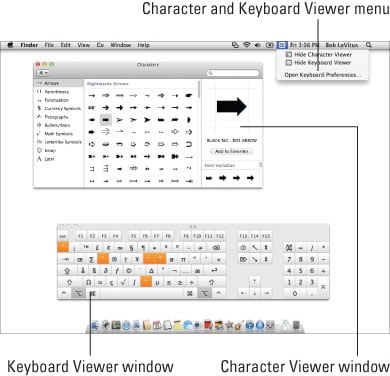May 08, 2018 Steps for Asterisk 15 w/bcg729 on Mac OS X High Sierra v10.13.4 minor issues in asterisk.rb and pjsip-asterisk.rb during brew change '. Next, we'll run a command called./configure, which will perform a number of checks on the operating system, and get the Asterisk code ready to compile on this particular server. root@server asterisk-11.X.Y#./configure. You can use the Tab key to cycle between the various sections, and press the Enter key to select or unselect a. Enable/disable VoiceOver Control-Option lock (Mac OS X 10.4 or later) The Universal Access preference pane allows you to turn on Mouse Keys. When Mouse Keys is on, you can use the numeric keypad to move the mouse.
There are a lot of programs that hide the passwords under those asterisks in order to protect your privacity.
But sometimes you don't remember the passwords you wrote and there you have those asterisks hiding your own password. Now you can solve that problem for free, just install this lite application and run it, then a window will appear where you'll easily find your password ready to be remembered again.
In addition, you'll be able to save the report. Asterisk Key is compatible with the most used programs and webs, so it's difficult you find any problem to have your passwords revealed.
Downloads of Asterisk are available at https://downloads.asterisk.org/pub/telephony/asterisk/. The currently supported versions of Asterisk will each have a symbolic link to their related release on this server, named asterisk-{version}-current.tar.gz. All releases ever made for the Asterisk project are available at https://downloads.asterisk.org/pub/telephony/asterisk/releases/.
The currently supported versions of Asterisk are documented on the Asterisk Versions page. It is highly recommended that you install one of the currently supported versions, as these versions continue to receive bug and security fixes.
Which version should I install?
Icon- If you want a rock solid communications framework, choose the latest Long Term Support (LTS) release.
- If you want the latest cool features and capabilities, choose the latest release of Asterisk. If that is a Standard release, note that these releases may have larger changes made in them than LTS releases.
Unless otherwise noted, for the purposes of this section we will assume that Asterisk 14 is being installed.
Review Asterisk's System Requirements in order to determine what needs to be installed for the version of Asterisk you are installing. While Asterisk will look for any missing system requirements during compilation, it's often best to install these prior to configuring and compiling Asterisk.
Asterisk does come with a script, install_prereq, to aid in this process. If you'd like to use this script, download Asterisk first, then see Checking Asterisk Requirements for instructions on using this script to install prerequisites for your version of Asterisk.

- Asterisk
- Other Projects
Downloading Asterisk
Browse to https://downloads.asterisk.org/pub/telephony/asterisk, select asterisk-14-current.tar.gz, and save the file on your file system.
You can also get the latest releases from the downloads page on asterisk.org.
Alternatively, you can use wget to retrieve the latest release:

- Asterisk
- Other Projects
Downloading Asterisk
Browse to https://downloads.asterisk.org/pub/telephony/asterisk, select asterisk-14-current.tar.gz, and save the file on your file system.
You can also get the latest releases from the downloads page on asterisk.org.
Alternatively, you can use wget to retrieve the latest release:
libpri
The libpri library allows Asterisk to communicate with ISDN connections.You'll only need this if you are going to use DAHDI with ISDN interface hardware (such as T1/E1/J1/BRI cards).
DAHDI
The DAHDI library allows Asterisk to communicate with analog and digital telephones and telephone lines, including connections to the Public Switched Telephone Network, or PSTN.
DAHDI stands for Digium Asterisk Hardware Device Interface, and is a set of drivers and utilities for a number of analog and digital telephony cards, such as those manufactured by Digium. The DAHDI drivers are independent of Asterisk, and can be used by other applications. DAHDI was previously called Zaptel, as it evolved from the Zapata Telephony Project.
The DAHDI code can be downloaded as individual pieces (dahdi-linux for the DAHDI drivers, and dahdi-tools for the DAHDI utilities. They can also be downloaded as a complete package called dahdi-linux-complete, which contains both the Linux drivers and the utilities.
You will only need to install DAHDI if you are going to utilize DAHDI compatible analog or digital telephony interface boards.
Why is DAHDI split into different pieces?
Asterisk Key For Os X Operating System
IconDAHDI has been split into two pieces (the Linux drivers and the tools) as third parties have begun porting the DAHDI drivers to other operating systems, such as FreeBSD. Eventually, we may have dahdi-linux, dahdi-freebsd, and so on.
Asterisk Key For Os X Os
| Project | Location |
|---|---|
| Asterisk | https://downloads.asterisk.org/pub/telephony/asterisk/asterisk-14-current.tar.gz |
| libpri | https://downloads.asterisk.org/pub/telephony/libpri/libpri-current.tar.gz |
| dahdi-linux | https://downloads.asterisk.org/pub/telephony/dahdi-linux/dahdi-linux-current.tar.gz |
| dahdi-tools | https://downloads.asterisk.org/pub/telephony/dahdi-tools/dahdi-tools-current.tar.gz |
| dahdi-complete | https://downloads.asterisk.org/pub/telephony/dahdi-linux-complete/dahdi-linux-complete-current.tar.gz |

